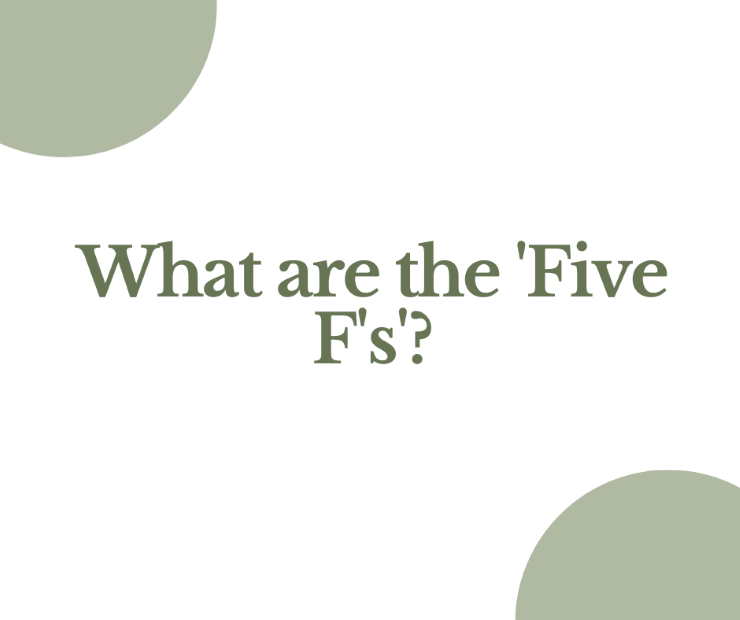
As humans, we’ve been cleverly designed to have specific responses to danger, that maximise our chances of survival.
These are known as The Five F’s and are enlisted not only in traumatic situations like physical or sexual assault, but also in daily life.
What are the Five Fs?
You’ve probably heard of two of the Five F’s (‘fight or flight’) but did you know about these others?
- Freeze
- Friend
- Flop
These are all responses that happen outside of our decision making processes. We don’t pause and actively pick the one we fancy. Far from it!
The survival part of our brain makes a lightning quick decision. Sometimes this is based on what is most likely to be successful eg. if you’re being mugged by someone stronger than you there’s no point in ‘fight’ but if you comply (‘friend’) and hand over your phone, then you’re at least likely to survive the attack.
Sometimes it’s also based on what has worked on previous occasions. If you were bullied at school, surviving might have meant being as silent and invisible as you could (‘freeze response’). Later in life, a conflict at work when you really might need to be assertive and make your point, finds your brain thinking “A-ha, here’s a conflict and I know what strategy has worked for me before so I’ll use it again”. And whilst it was helpful to 12yr old you, it might not be so helpful to 26yr old you.
If you have a diagnosis of PTSD or C-PTSD then it is likely that your brain has learnt that the world can be unpredictable or dangerous. Because of this it may regularly default to one or more of these Five F’s.
Let’s find out more about these Five F’s
Fight – As you can imagine, this sometimes means physically responding to threat by pushing, shoving or fighting back when we’re under attack. It generally shows up as defensiveness or anger so might involve blaming others, shouting or criticising.
Flight – this is the survival strategy that is saying “get out of here, fast”. You might actually try to get out of the situation or away from the person but it can also mean things like avoidance. Of people, places or conversations. It can also appear in how we go through our lives – perhaps moving constantly from one job, situation or relationship to another.
Freeze – this comes from the evolutionary strategy of going dead still in order to avoid detection. People who’ve been attacked often say they ‘just froze’ and were unable to shout or call for help. Instead they may go silent or not being able to get words out. You might feel very spaced out, rigid with fear or stuck.
Friend – the method that’s commonly used when our survival brain knows that fight or flight are going to be pointless. Typically it’s seen in hostages who try to negotiate or ‘make friends with’ their captors in order to stay alive. Smiling at or talking with the person who’s threatening us is typical of this response. It can also show up as pleading with others for assistance, people-pleasing or never saying no.
Flop – finally, if no other options seem likely to succeed, a person may ‘flop’. Just like the cat whose body goes floppy if they fall from a height, the aim of this is to minimise harm. It can feel like the body loses all strength, the spirit becomes hopeless and helpless and the person gives up. In doing so, we’re not risking further harm by resisting the attack on us. Additionally we’re not risking disappointment by hoping for an end to whatever’s harming us.
When your trauma response ‘gets in the way’
As I’ve mentioned, these responses all make perfect sense at the right time, and in the right situation. But sometimes our brains perceive danger when there isn’t any, and deploy these responses unnecessarily. A little like the airplane oxygen masks falling into your lap whilst you’re still sitting safely on the runway.
That’s because your survival brain would rather be safe than sorry.
Trauma therapy can help your brain to learn what is safe and what isn’t. To create a sense of safety in the body that calms the survival brain and puts a pause between situation and reaction. It can also help you to understand more about trauma and be less critical of yourself for having these absolutely normal reactions and responses.
Whichever you identify with here, know that these are not conscious choices.
Even though they might not always feel helpful to you, it’s simply your brain doing its best to keep you alive.

Leave a Reply